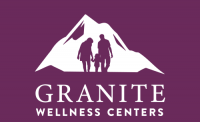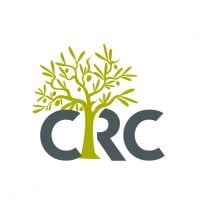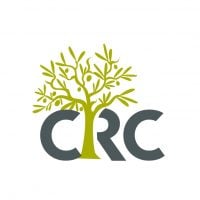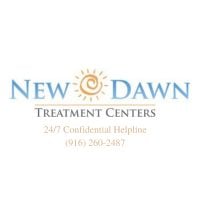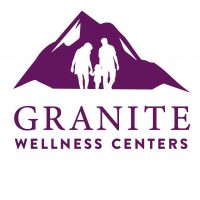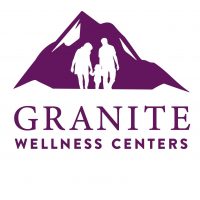Community Recovery Resources
Drug Rehab Center in Lincoln, California
Community Recovery Resources is an accredited drug rehab facility in Lincoln, California that offers personalized addiction treatment services including aftercare support, intervention, outpatient and residential care, and educational resources.
About This Lincoln, CA Facility
Granite Wellness Centers - Lincoln, located in the scenic city of Lincoln, California, is a renowned addiction treatment facility with a rich history of providing comprehensive care to individuals battling substance abuse and mental health issues. With a primary focus on helping clients achieve lasting recovery, Granite Wellness Centers - Lincoln offers a range of evidence-based treatment programs tailored to meet the unique needs of each individual.
• CARF accreditation and state license certification ensure the highest standards of care
• Comprehensive treatment programs address alcoholism, opioid addiction, dual diagnosis, drug addiction, and substance abuse
• Continuum of care includes detox, inpatient, residential, outpatient, and intensive outpatient programs
• Aftercare support and intervention services provide ongoing guidance and support for long-term recovery
Granite Wellness Centers - Lincoln is committed to delivering exceptional care, as evidenced by their CARF accreditation and state license certification. Their affiliation with Granite Wellness allows them to leverage a network of resources and expertise to provide the most effective treatment options for their clients. The facility accepts private health insurance, making treatment more accessible to those seeking help.
At Granite Wellness Centers - Lincoln, individuals can receive specialized care for a wide range of addictions, including alcoholism, opioid addiction, drug addiction, and substance abuse. They also offer dual diagnosis services to address co-occurring mental health disorders. Their treatment approach incorporates evidence-based therapies, holistic interventions, and a supportive environment to foster healing and personal growth.
Genders
Ages
Modality
Additional
Accreditations
State License

CARF
The Commission on Accreditation of Rehabilitation Facilities (CARF) is a non-profit organization that specifically accredits rehab organizations. Founded in 1966, CARF's, mission is to help service providers like rehab facilities maintain high standards of care.
Conditions and Issues Treated
Addiction to prescription opioid painkillers like oxycodone and hydrocodone, and illicit opioids such as heroin, leads to potentially life-threatening withdrawal symptoms when discontinued. Opioid addiction treatment typically involves an inpatient stay at facilities like Community Recovery Resources to make sure they get through withdrawal safely. Treatment also includes comprehensive mental health counseling.
Levels of Care Offered
This center offers a variety of custom treatment tailored to individual recovery. Currently available are Aftercare Support, Drug Rehab, Intensive Outpatient, Intervention, Outpatient, Residential, with additional therapies available as listed below.
Daily trips to the hospital that provides the treatment include intensive outpatient services (IOP). IOP in California is appropriate for patients in residential recovery facilities that have been diagnosed with addiction. Patients return to their everyday lives gradually, increasing the likeliness of success in treatment.
To assist with alcohol or opioid abuse, or a co-occurring condition, Community Recovery Resources offers an outpatient treatment program. For their rehabilitation and other services, the California patient will go to the treatment center, yet return home every night. After most of the program is completed, the level of mandatory participation reduces.
Residential treatment programs are those that offer housing and meals in addition to substance abuse treatment. Rehab facilities that offer residential treatment allow patients to focus solely on recovery, in an environment totally separate from their lives. Some rehab centers specialize in short-term residential treatment (a few days to a week or two), while others solely provide treatment on a long-term basis (several weeks to months). Some offer both, and tailor treatment to the patient’s individual requirements.
Treatment is just a first step in sustaining sobriety. After rehabilitation, counseling for aftercare helps the person adapt to a life without drugs. A sober living facility in Lincoln, job therapy, or educational assistance may be included in this service, managed by Community Recovery Resources. This is when a preventive strategy for relapse starts to take shape.
Community Recovery Resources‘s Therapies & Programs
In addiction recovery at Community Recovery Resources, therapy plays a significant role. This helps patients get to the root of their addiction and discover how the problems that contributed to their use can be handled better. Therapy can be performed in a group and one on one settings. The patient interacts with the therapist in a one-on-one atmosphere during individual therapy. This encourages them to reflect on the underlying addiction problems and develop ways to avoid potential future abuse.
Recovering from addiction involves recovering relationships as well. One of the most common areas of stress and damage during addiction is in intimate relationships. Couples therapy at Community Recovery Resources can rebuild trust and joy that may have been damaged. Addiction involves everyone in the family, not only the addict.
Family roles can change in damaging ways that may require professional help to rebalance. Successful intimate relationships can decrease the chances for relapse by ensuring a healthy environment after rehab in Lincoln, CA.
Addiction and alcoholism affect the entire family. For this reason, family therapy is vital to a person’s recovery from addiction. In contrast to couples counseling, family therapy at Community Recovery Resources may include siblings, children, parents, and other significant people in the recovering person’s life. Family support is one of the most important pillars of recovery.
Many people turn to drugs and alcohol as a way of processing trauma that has affected them in the past. Trauma can include abuse, neglect, the loss of a loved one and other unpleasant incidents. Trauma therapy at Community Recovery Resources helps patients process trauma. It gives them the tools to deal with it in a healthier manner.
Dialectical behavioral therapy (DBT) is a type of Cognitive Behavioral Therapy that focuses on eliminating specific negative thoughts such as suicidal thoughts that can potentially lead to an individual inflicting self-harm. It is useful in the treatment of patients exhibiting uncontrollable emotions, intense mood swings, and borderline personality disorders.
The term “Dialectic” means the integration of opposites. In the substance abuse context, DBT refers to accepting the patient’s addiction and working to change their thoughts and behavior. It improves life skills such as controlling the intense emotions without reacting impulsively, resolving the interpersonal conflicts effectively, and promoting awareness about self and others.
Cognitive Behavioral Therapy (CBT) examines the relationship between a patient’s thoughts, feelings and behaviors. Community Recovery Resources aims to establish a healthy response to thoughts and feelings as an alternative to turning to drugs and alcohol. It also promotes healthy communication between addicts and those around them. It is and effective therapy for people suffering with all types of addictions.
Rational Emotive Behavior Therapy (REBT) is a type of cognitive therapy. It is based on the principle that irrational thoughts are responsible for the emotional and behavioral changes in addiction. So, the therapy starts with identifying the underlying irrational thoughts. These thoughts are then challenged and opposed logically and then replaced with positive thoughts. It also helps to change unwanted behavior with techniques such as meditation.
By imparting positive thoughts and emotions, Rational Emotive Behavior Therapy (REBT) makes the individual self-reliant with a capacity to handle the emotional and behavioral issues in future by themselves without professional help. This self-dependence benefits the patients and prevent relapses.
Life skills pertain to the skill sets a person should possess to become successful in life. Examples are time management, budgeting, and social abilities. Life skills therapy highlights the fact that addiction recovery is more than just a person’s ability to go through their day-to-day without resorting to substance use in Lincoln, CA once they leave the facility.
It’s no surprise that diet is a crucial player in one’s well-being. What an individual puts into his or her body becomes the fuel that drives the mental and physical faculties to perform accordingly. Therefore, nutrition therapy, also known as medical nutrition therapy (MNT), guarantees that an individual is providing his or her mind and body with proper nourishment.
The right diet can improve a person’s general outlook, sleep habits, and thought processing skills. MNT also lowers the occurrence of chronic diseases such as adult-onset diabetes. Dieticians at Community Recovery Resources in Lincoln, California believe that nutrition therapy is the key to making significant lifestyle changes, especially when it comes to personal care.Nicotine Replacement Therapy (NRTC) used products like skin patches and gum to deliver nicotine into the bloodstream of people trying to quit smoking. This helps break the habits associated with smoking. The very low doses of nicotine managed by Community Recovery Resources prevent cravings while helping people make a gradual transition to complete smoking cessation.
Patient Experience
Creative Arts
For those combating addiction recovery in Lincoln, CA, creative arts therapy, or expressive therapy, is advantageous. Reading, music, theater, art, and other types of self-expression may be included. Community Recovery Resources uses this to enhance the mental state of the patient and help them to focus on something other than addiction. It helps patients to explore how, through the creative process, their thoughts and emotions play out.
Experiential Therapy at Community Recovery Resources
Experential therapy is a unique type of therapy that deals with the subconscious mind. This treatment available at Community Recovery Resources in Lincoln, CA encourages individuals to work out their issues with their inner self through synchronous experiences.
This non-traditional treatment method makes use of the physique and encourages people to take part in various physical and emotional activities, movements, and practices. Some of the most common examples of experiential therapy are equine therapy, music therapy, adventure therapy, and role playing. Through these various methods, an individual is believed to heal from trauma, negative emotions, and hurtful memories faster. Moreover, experiential therapy is known to have enduring results which can be beneficial to sufferers.
Payment Options Accepted
For specific insurance or payment methods please contact us.
Is your insurance accepted?
Ask an expert, call (888) 674-0062
Granite Wellness Associated Centers
Discover treatment facilities under the same provider.
- Granite Wellness Centers - Auburn in Auburn, CA
- Granite Wellness - Grass Valley in Grass Valley, CA
- Granite Wellness - Adolescent Program in Roseville, CA
- Granite Wellness - Mothers in Recovery in Auburn, CA
- Granite Wellness Centers - Roseville in Roseville, CA
Learn More About Granite Wellness Centers
Additional Details
Specifics, location, and helpful extra information.
Lincoln, California 95648 Phone Number(916) 434-8927 Meta DetailsUpdated April 15, 2024
Staff Verified
Patient Reviews
There are no reviews yet. Be the first one to write one.
Lincoln, California Addiction Information
More than 3 million of California's citizens are addicted to illegal drugs. Almost 800,000 people use hard drugs, almost 5 million use marijuana, and another 2.1 million abuse alcohol every year. Other substance abuse issues such as binge drinking and teen drug use are also common. Many illegal drugs such as cocaine, heroin, methamphetamine, and marijuana are smuggled into the state from Mexico.
Treatment in Nearby Cities
- Boulevard, CA (514.7 mi.)
- San Fernando, CA (356.2 mi.)
- La Conner, CA (659.7 mi.)
- Solana Beach, CA (466.2 mi.)
- Santa Clara, CA (112.0 mi.)
Centers near Community Recovery Resources
The facility name, logo and brand are the property and registered trademarks of Community Recovery Resources, and are being used for identification and informational purposes only. Use of these names, logos and brands shall not imply endorsement. RehabNow.org is not affiliated with or sponsored by Community Recovery Resources.
